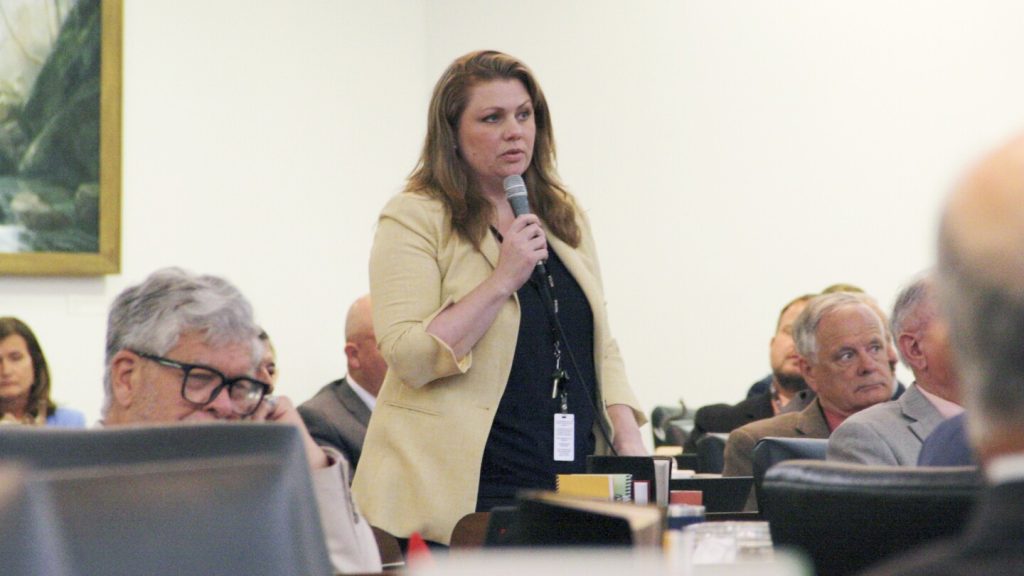After the North Carolina state House voted not to accept changes made by the state Senate to a bill addressing mask-wearing at protests, the legislation is now under review. The bill includes provisions to enhance penalties for wearing masks while committing a crime and for blocking roadways during a demonstration. The bill was partially in response to college protests, including those at the University of North Carolina at Chapel Hill, about the war in Gaza. The removal of a pandemic-era masking exemption for health purposes has caused controversy, with some House Republicans voicing concerns about the impact on those who wear masks for medical reasons. The bill will now go to a team of lawmakers to negotiate revisions.
One Republican lawmaker, Rep. Erin Pare, publicly voiced her opposition to the bill’s removal of the health exemption, stating that clarity is needed on the issue. With the GOP holding a slim supermajority in both chambers, every Republican vote is crucial for the bill’s passage. House Speaker Tim Moore noted that there is interest in the House to maintain health and safety protections for masking while addressing concerns about people concealing their identity while committing crimes. Senate Democrats had previously raised concerns that immunocompromised individuals could be targeted for wearing masks in public. Despite concerns, legislative staff indicated that masking for health reasons would violate the proposed law.
The bill has caused confusion among the public, with many questioning the implications of removing the health exemption for mask-wearing. The intention of the bill, according to Republican supporters, is not to criminalize masking for health reasons but to prevent individuals from masking their identity while engaging in criminal activities. The Senate had proposed changes to the bill that would remove the health exemption, leading to the current review and negotiation process between lawmakers. The bill’s impact on individuals who rely on masks for health purposes, particularly during the ongoing pandemic, has become a focal point of the debate.
As the bill moves to a team of lawmakers for revisions, the future of the legislation remains uncertain. The House’s decision not to accept the Senate’s changes indicates a need for further discussion and clarification on the issue of mask-wearing at protests. The controversy surrounding the bill highlights the complex intersection of public health concerns, civil liberties, and criminal justice in the context of protests and demonstrations. Ultimately, the negotiation process will determine the final outcome of the bill and its implications for individuals who wear masks for health reasons in North Carolina.


